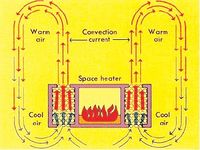Difference between revisions of "Main Page Beta"
| Line 50: | Line 50: | ||
(thermal energy) and how it is transferred. We will also investigate the principles of minimal design. Your design will be entered in a competition | (thermal energy) and how it is transferred. We will also investigate the principles of minimal design. Your design will be entered in a competition | ||
against the other containers in your section. The team with the lowest Minimal Design Ratio (MDR) will be declared the winner.</p> | against the other containers in your section. The team with the lowest Minimal Design Ratio (MDR) will be declared the winner.</p> | ||
<p><b>Just-in-time Review: </b> Important equations</p> | |||
</div> | </div> | ||
| valign="top" style="background: #ffffff; border: 1px solid #aaaaaa;" width="50%"| | | valign="top" style="background: #ffffff; border: 1px solid #aaaaaa;" width="50%"| | ||
| Line 62: | Line 63: | ||
<b>Featured SLDP</b></div> | <b>Featured SLDP</b></div> | ||
<div style="margin: 0.2em 10px 10px"> | <div style="margin: 0.2em 10px 10px"> | ||
<div><center><b>[[Search_%26_Recovery_Robot_(SRR)|Search and Recovery Robot (SRR)]]</b></center></div> | <div><center><b><u>[[Search_%26_Recovery_Robot_(SRR)|Search and Recovery Robot (SRR)]]</u></b></center></div> | ||
<p>In 2007, meteor Billy1987 collided with the International Space Station (ISS). The ISS orbits the moon | |||
and is a research facility assembled in space and formed among the space agencies of the US, Russia, Japan, | |||
Canada and eleven European countries. During the collision, several pieces of the ISS landed on the Moon, | |||
including "Zarya", the power supply module. NASA has issued an RFP for the development of a cost-effective | |||
autonomous robot that will retrieve Zarya. The robot should be compact in size in order to fit into the space | |||
shuttle. It will be released from the shuttle, land on the moon, traverse through the debris, retrieve Zarya, | |||
and return back to its landing site where it will take off back to the space shuttle.</p> | |||
[[File:MSSAR3.gif|center|500px|thumb|SRR Course Configuration]] <!-- Lecturer Image and Caption --> | [[File:MSSAR3.gif|center|500px|thumb|SRR Course Configuration]] <!-- Lecturer Image and Caption --> | ||
</div> | </div> | ||
|} | |} | ||
Revision as of 18:41, 26 April 2016
|
Objective: The experimental objective of this lab is to design and build a container that minimizes the heat lost by an egg placed inside. The heat loss will be measured by recording the temperature of the surface of the egg. Furthermore, you will learn about heat as a form of energy (thermal energy) and how it is transferred. We will also investigate the principles of minimal design. Your design will be entered in a competition against the other containers in your section. The team with the lowest Minimal Design Ratio (MDR) will be declared the winner. Just-in-time Review: Important equations |
Lecture of the Week
| |||
|
Featured SLDP
In 2007, meteor Billy1987 collided with the International Space Station (ISS). The ISS orbits the moon and is a research facility assembled in space and formed among the space agencies of the US, Russia, Japan, Canada and eleven European countries. During the collision, several pieces of the ISS landed on the Moon, including "Zarya", the power supply module. NASA has issued an RFP for the development of a cost-effective autonomous robot that will retrieve Zarya. The robot should be compact in size in order to fit into the space shuttle. It will be released from the shuttle, land on the moon, traverse through the debris, retrieve Zarya, and return back to its landing site where it will take off back to the space shuttle. |



